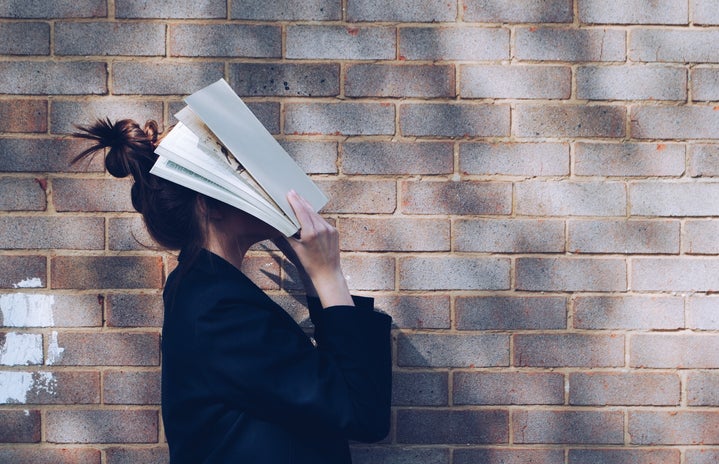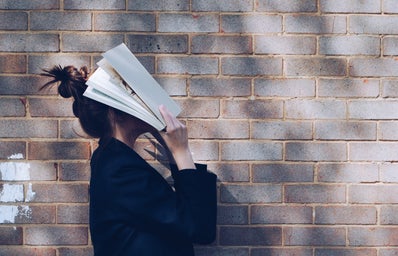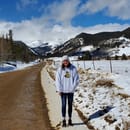I learned about the concept of banned books in middle school as the book review editor of my school newspaper. However, it wasn’t until I started college as a secondary English education major that I discovered that Banned Books Week — an annual remembrance throughout the last week of September dedicated to our freedom to read — was such a prominent celebration among the education and journalist communities. More importantly, it wasn’t until then that I realized how crooked the censoring of books among education districts was.
As an education major, a majority of my classes heavily emphasize the importance of nurturing students and allowing them to feel safe while expressing themselves. The foundation of this sentiment seemed to crumble before my eyes as I scrolled through the list of banned books and the reasons as to their ex-communications from school districts. While certain reads were banned to extinguish the possible pushing of religion among a young audience or due to unnecessary vulgar language, I was perplexed and agitated by the numerous banned novels that been repudiated and even burned due to their ties with LGBT and sexual education topics. Above all, I was extremely disappointed.

The top of 2019’s banned books list is George by Alex Gino, the telling of a fourth-grade transgender girl who is known by her birth name George. The reason for the ban states that education systems should not “put books in a child’s hand that require discussion” and that it conflicts with traditional family structures. Eight of the top 10 books on this list follow the pattern of academic forbiddance due to their discussion of LGBT individuals. Even children’s books like And Tango Makes Three, a picture book following the story of two male penguins that create a family, that have no blatant implications or messages promoting any type of sexuality have been largely banned for having “gay themes” and raising the question as to “what makes a family.”
While banned book lists argue that books revolving around these topics could “indoctrinate young children” and go against “family values,” we are also telling these LGBT students that they are not welcome in the literature world and are too controversial to be celebrated for who they are. These lists discuss LGBT individuals like they are part of a minor, insignificant group, but these students have a population of over one million in just the American education system alone. Censoring their stories and retellings of their transgressions fuels ignorance among adolescents, as repressing stories of different groups means that students will not know or accept these individuals that they do not know about.
As gender-neutral restrooms become more accessible and gay marriage has been legalized, we still attempt to hide LGBT existence in the education system. These resilient students must not only endure their rejection by a disapproving society, but are forced to be placed into an “other” category because education will not make room for them to freely share their stories as equals.

Banned book lists do not just belittle certain groups in education, but also tend to shy away from teaching students about crucial topics like sex education. Children’s books like Sex is a Funny Word by Cory Silverberg, a certified sex educator, have been banned for allegedly leading children to “want to have sex or ask questions about sex.” The book’s chronicles about appreciating our bodies, gender identities, and the important discussion of consent may warrant questions from inquisitive children, but an open conversation about these topics will only result in a necessary teaching moment. As a student of the public education system, the extent of my sex education consisted of a ten minute lesson in seventh grade that advised us to simply “not do it.” This sets young adolescents up for dangerous trial and error and serious implications that could be lessened if children were taught about the topic through academic literature.
It’s Perfectly Normal by Robie H. Harris is arguably the most controversial children’s sex education book and is considered one of the most banned books in American schools. Although psychologists, scientists and educators praise the book’s factually-sound information regarding puberty, sexual health and relationships, others strongly disagree. Critics have repressed the distribution of this book in school districts due to reasons such as cartoon nudity and “illustrations and sexually graphic, amoral and abnormal contents” — as if these students will always live in a state of naivety and ignorance about sex and their reproductive systems. There’s a point in time where we can no longer blame storks, birds and bees for the creation of life.

During an NPR interview, Harris makes the valid argument that “[i]f a book is in a special section of the library, maybe the kids who need it the most are not going to get it.” These banned books don’t push the narrative of abstinence or engaging in sexual activities, but educate students on a concept that can either be taught safely or through the media and others’ biased experiences.
Educators have the responsibility to teach students about real-life topics and allow them to feel represented in the classroom — with the continuation of excessive banned books lists, we’re blowing it.
My request would be to challenge the banned book lists by reading some of these prohibited books. Are they actually dangerous for young students, or are their narratives twisted to fit a displeasing light that they aren’t actually trying to convey? You decide.



